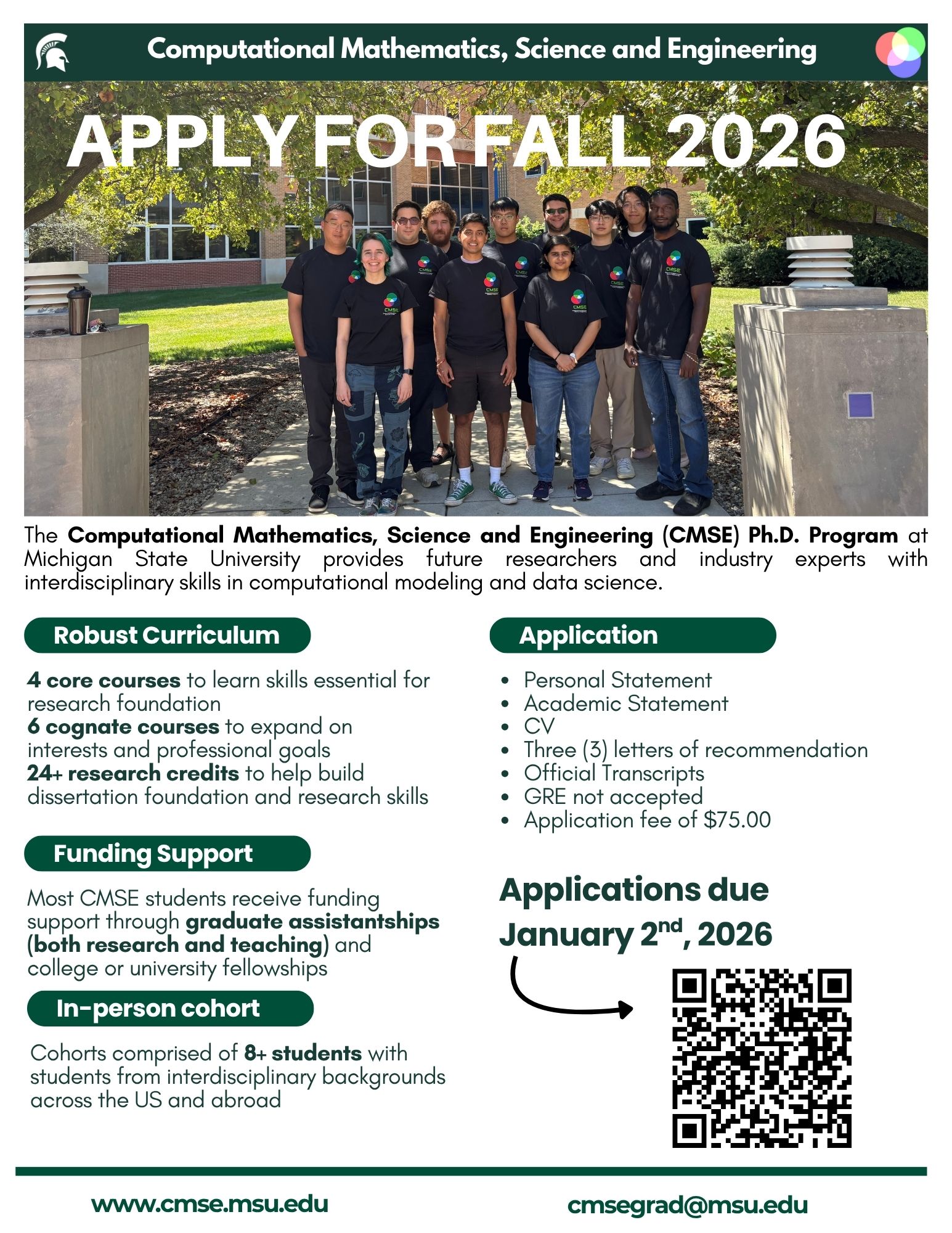Dissertation Defense of CMSE Pei Ge
Department of Computational Mathematics, Science & Engineering
Michigan State University
Dissertation Defense Notice
Friday April 4th, 12-2pm
EB 1420
Passcode: CMSE
Machine Learning-Based Multi-scale Hydrodynamic Modeling for Complex Systems
By Pei Ge
Abstract:
Multi-scale modeling presents a long-standing challenge in computational mathematics
and is pertinent to a wide range of applications in materials science, fluid physics,
and chemical engineering. Predicting collective behaviors typically necessitates the
integration of modeling dynamics across micro-scale (atomistic), meso-scale (kinetic),
and macro-scale (continuum) levels, with the vast range of spatiotemporal scales posing
a fundamental obstacle. Existing methods often rely on certain empirical constitutive
closures or micro-macro coupling approaches. Despite their broad applications, modeling
accuracy and efficiency are often challenged in real applications.
This dissertation aims to develop data-driven approaches for constructing accurate
and reliable reduced models of multi-scale systems based on first-principle descriptions.
The first part focuses on constructing a meso-scale reduced model of polymer kinetics
directly from the full molecular dynamics. We present a data-driven method to learn
stochastic reduced models of complex systems that retain a state-dependent memory
beyond the standard generalized Langevin equation (GLE) with a homogeneous kernel.
The constructed model naturally encodes the heterogeneous energy dissipation by jointly
learning a set of state features and the non-Markovian coupling among the features.
Numerical results demonstrate the limitation of the standard GLE and the essential
role of the broadly overlooked state-dependency nature in predicting molecule kinetics
related to conformation relaxation and transition.
The second part focuses on learning accurate non-Newtonian hydrodynamic models from
meso-scale polymer kinetics. To retain molecular fidelity, we establish a micro-macro
correspondence via a set of encoders for the micro-scale polymer configurations and
their macro-scale counterparts, a set of nonlinear conformation tensors. The dynamics
of these conformation tensors can be derived from the micro-scale model and the relevant
terms can be parametrized using machine learning. The final model, named DeePN$^2$,
has shown some success in systematically passing the micro-scale heterogeneous polymer
structural mechanics to the macro-scale hydrodynamics without human intervention.
Committee Members:
Huan Lei (chair)
Daniel Appelö
Michael Murillo
Yimin Xiao



